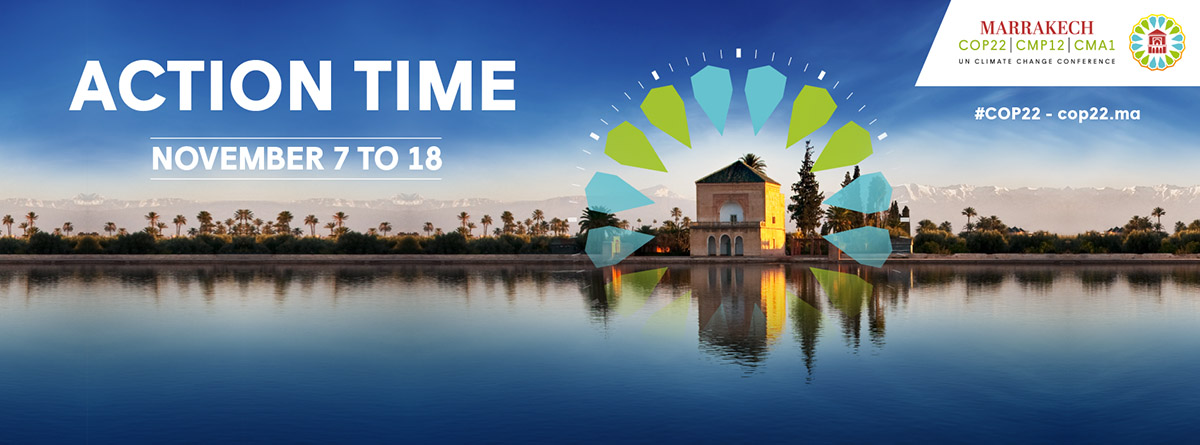nrg4SD at the 22nd session of the Conference of the Parties (COP 22) to the UNFCCC

It is widely acknowledged that subnational governments such as regions, states and provinces are key players on the ground to limit and tackle efficiently climate change. Indeed, 50% to 80% of adaptation and mitigation actions necessary to tackle climate change are or will be implemented at the subnational or local levels.
Responding to this challenge, subnational governments from all over the world have been demonstrating that their contribution and leadership is essential to help achieve the ultimate objectives of the UNFCCC.
Because subnational governments are placed between national and local governments, they can stay tuned with citizens’ expectations, raise awareness and trigger behavioural change; collaborate with national and local governments, businesses, NGOs and financial institutions, tailoring their actions to the particular circumstances of populations and territories; and promote policy coordination, coherence, and vertical integration. Subnational governments are, in sum, an essential nexus between the national and the local levels.
Besides, subnational governments within their differentiated responsibilities and respective capabilities develop and implement laws, policies, strategies, standards, programs, and fiscal mechanisms in areas that directly influence GHG emissions (e.g. energy, environment, transport, industry, agriculture, land-use, and civil security). They also are key actors in shaping ambitious and innovative climate policies (sometimes with few resources) and in strengthening efforts and instruments for providing technology, finance and capacity-building.
Convinced of the aforementioned, nrg4SD has worked for the past 15 years in raising the voice of subnational governments, promoting their leadership and representing them in climate forums, especially the UNFCCC Conferences of the Parties (COP). As a result of that, and especially to the works developed within the Local Governments and Municipal Authorities constituent group (LGMA), today the UNFCCC recognises the relevance of subnational governments in ensuring the effective implementation of international agreements and decisions. In particular, COP16 (2010) recognised for the first time the need to engage local and subnational governments as key governmental stakeholders in the climate process; later, COP19 (2013) addressed the important engagement of subnational authorities in sharing and implementing climate actions (Decision 1/CP19 par. 5b).
Last year, the Paris Agreement consolidated this language and the need to take action on the ground, at the subnational level. Already on the Preamble, the agreement affirms the importance of cooperating with cities and subnational governments. As non-Party-stakeholders, subnational governments are referred to as actors relevant to reducing emissions and building resilience to climate change effects (§ 134-137).
In this COP 22 edition, the main challenge is how the Paris Agreement will be implemented now it has entered into force. Vertical integration and coordination, coherence and cohesion need to guide the necessary multi-level governance in this process. Subnational governments have an important responsibility in translating into their territories and to their people the global targets to be achieved. In this sense, funds should be provided in order to enable and improve their capacities, especially when thinking in South territories.
The nrg4SD will follow closely the Parties’ negotiations and will contribute to the joint declaration that subnational and local governments will make for the consideration of Parties of the Convention. In this regard, nrg4SD has planned an ambitious agenda including different side-events for the participation of members from nrg4SD, ORU Fogar, with special attention to participant of the RegionsAdapt -the nrg4SD climate adaptation initiative. During these opportunities, regions will showcase their flagship initiatives and innovative projects in tackling climate change (complete agenda available at http://www.nrg4sd.org/climate-change/run-up-to-cop-22/).
The nrg4SD RegionsAdapt initiative was launched at the occasion of COP 21, becoming a global platform to bolster subnational cooperation and exchange on climate adaptation. The initiative was founded by 27 subnational governments from all continents, and now -after less than one year of life has 62 signatories. By joining the initiative, regions work in different thematic Working Groups - currently 4 topics are addressed: (i) water resources and management; (ii) resilience and disaster risk reduction; (iii) forestry, protected areas and biodiversity; and (iv) economic impacts and opportunities. The 62 signatories of RegionsAdapt have committed to: adopt a strategic approach to adaption; take concrete action on adaptation in at least one of the key priority thematic areas identified by the regions; and finally report data on the progress of the adaptation actions on an annual basis, through CDP´s Compact of States and Regions reporting platform. The RegionsAdapt initiative will contribute to the COP 22 with a report on the achievements made to date (very soon available at www.nrg4sd.org).
By this article, we would like to invite ORU Fogar members to join our efforts and events in COP 22. The nrg4SD as founding member of ORU-Fogar serves as its representative in sustainable development matters including climate change. Therefore, nrg4SD achievements are also those of ORU Fogar’s members.
Natalia Vera
In representation of nrg4SD Secretariat







































































